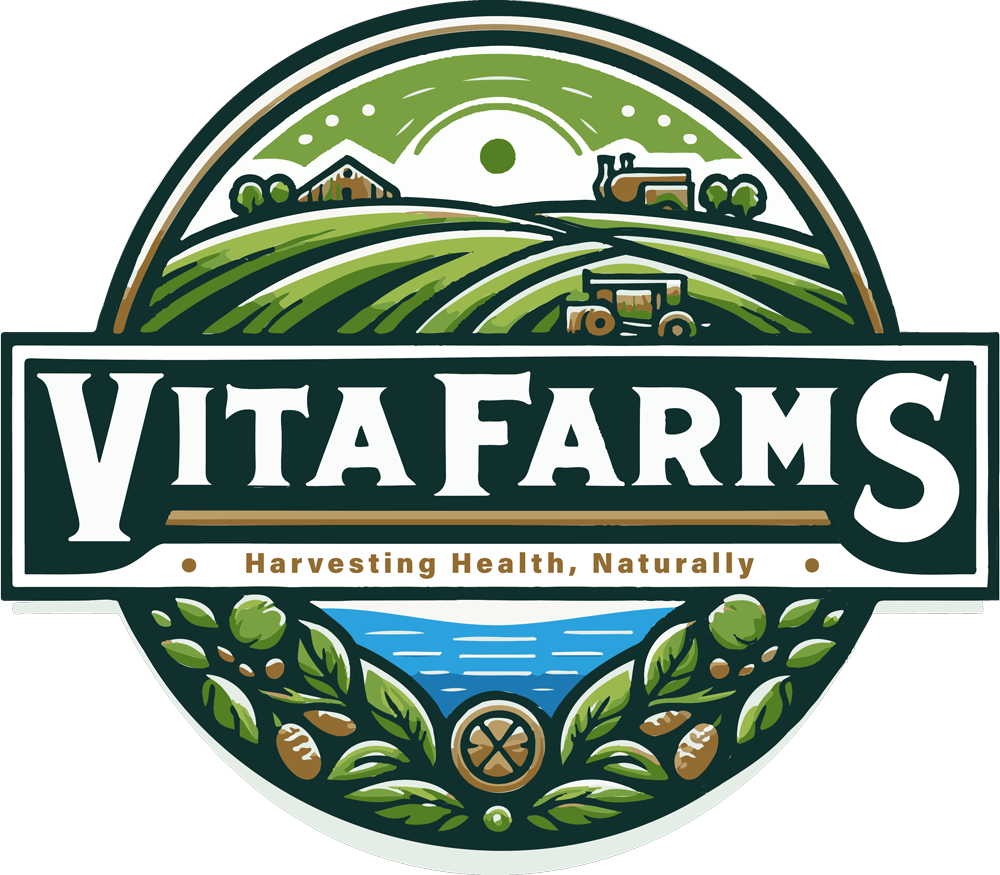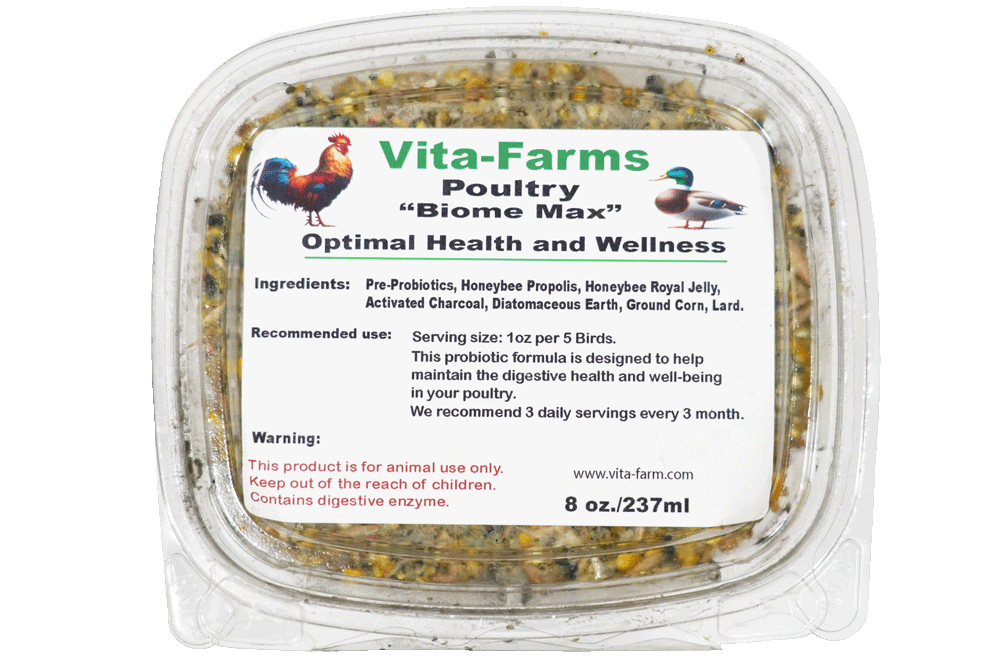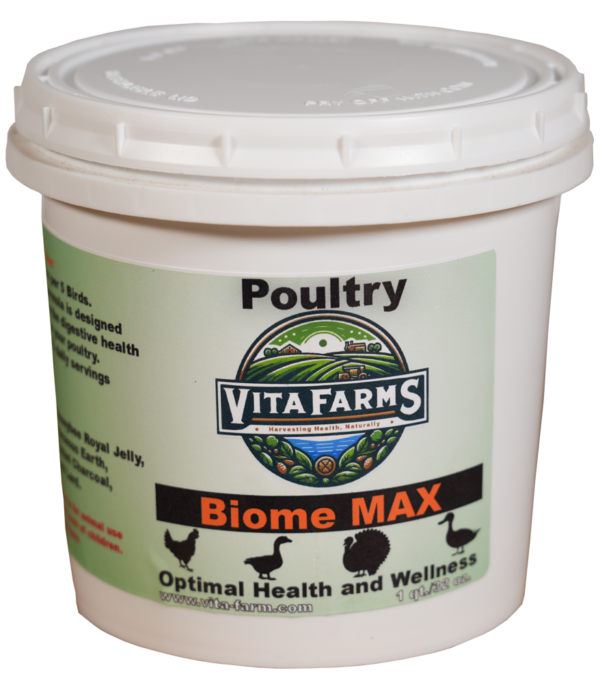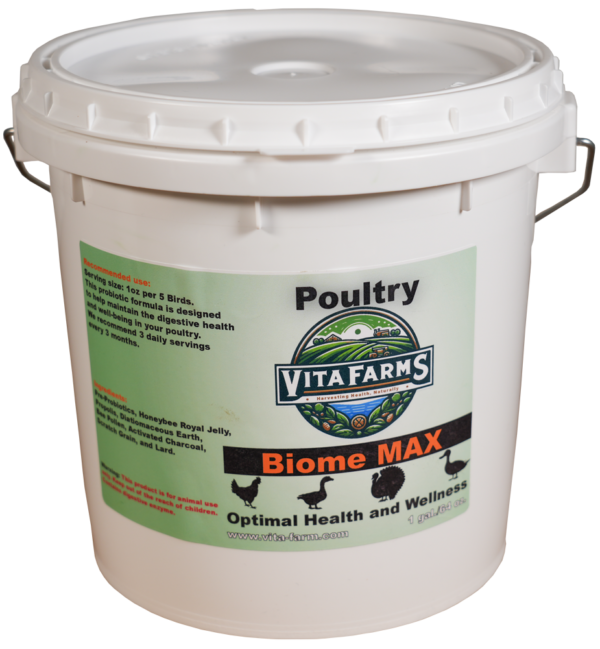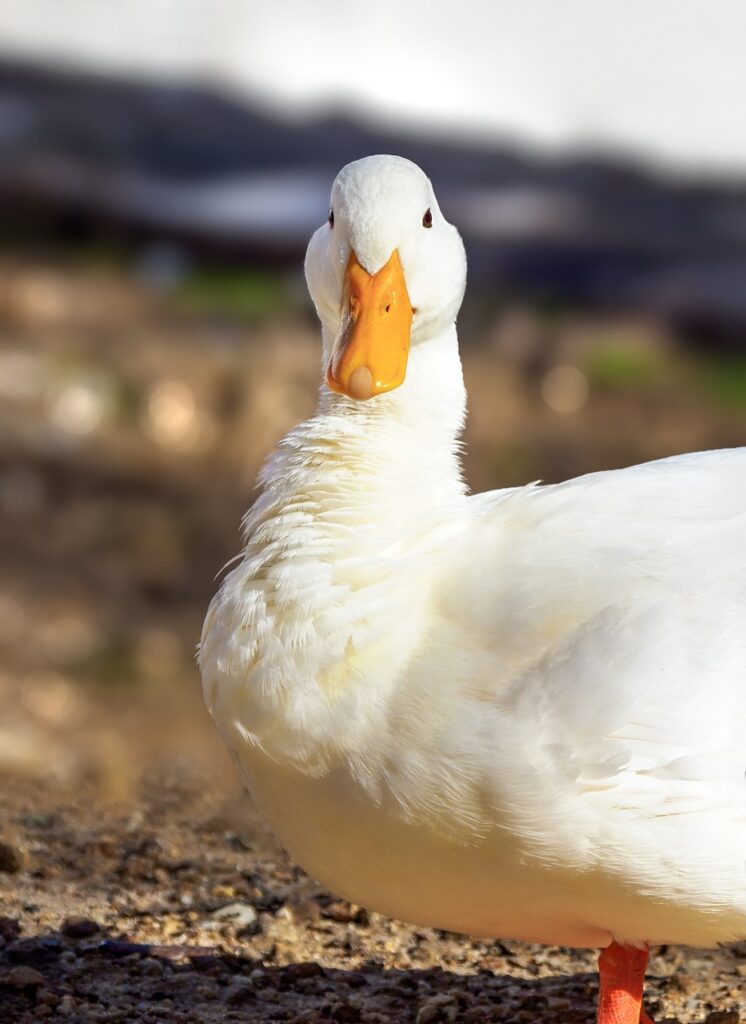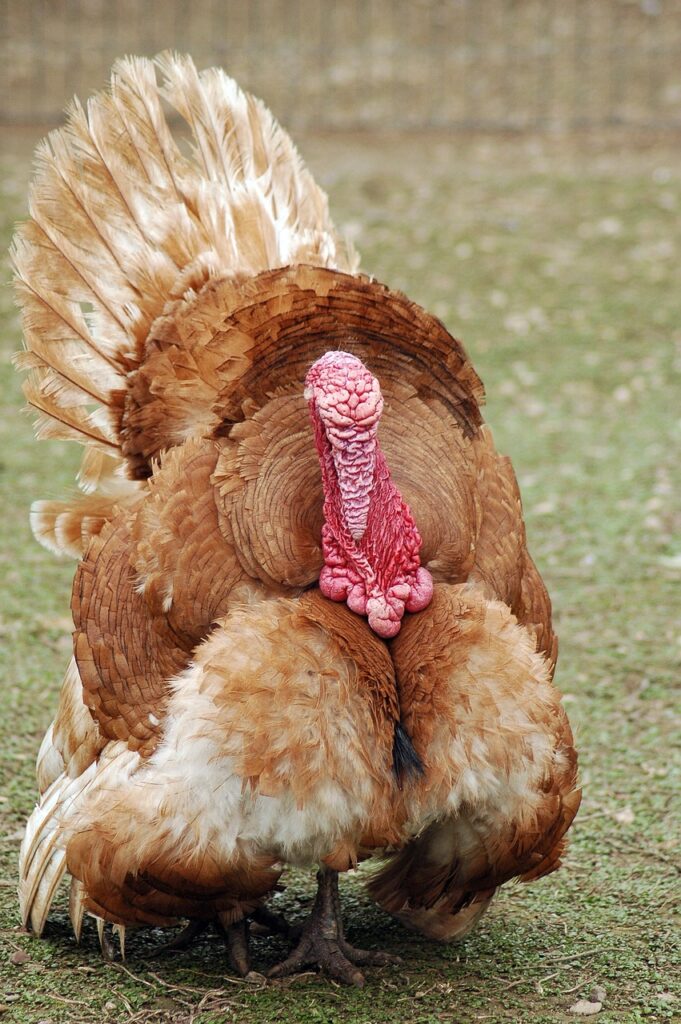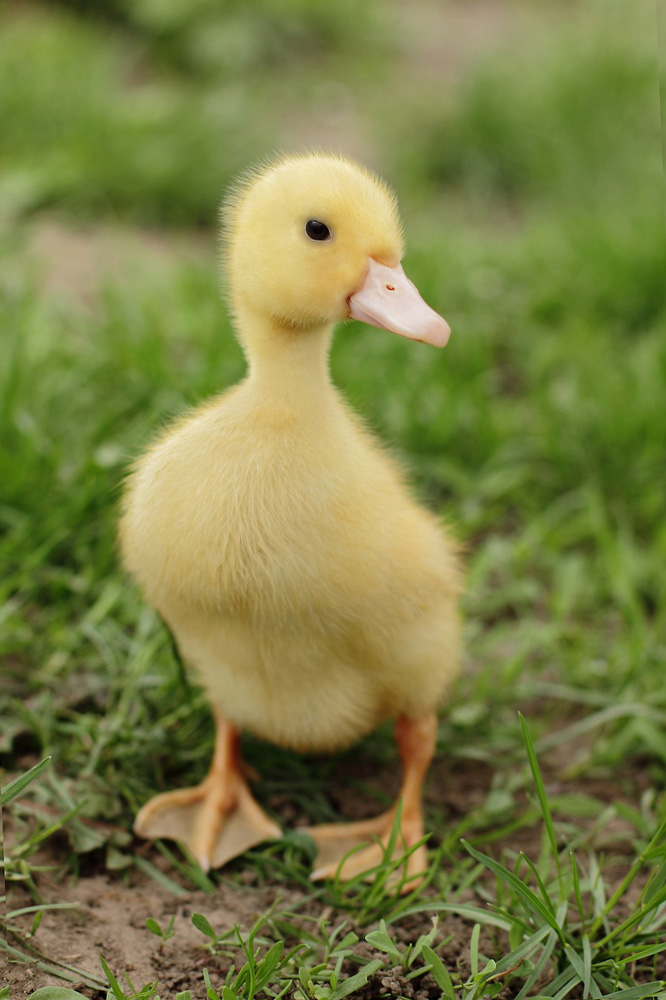Poultry Health
8 oz. Poultry “Biome Max”
Optimal Health and Wellness. This probiotic formula is designed to help maintain the digestive health and well-being of your poultry, as…
1 qt Poultry “Biome Max”
Optimal Health and Wellness.This probiotic formula is designed to help maintain the digestive health and well-being of your poultry, as…
1 Gal Poultry “Biome Max”
Optimal Health and Wellness. This probiotic formula is designed to help maintain the digestive health and well-being of your poultry, as…
The Benefits Of The Ingredients In Poultry Biome Max
Honey Bee Royal Jelly
Benefits of Royal Jelly for Birds
Royal jelly is a substance produced by worker bees to feed the queen bee and young larvae. The queen bee, who lives only on Royal jelly lives up to 5 years, when in fact the average bee only lives up to 6 months. Royal jelly is packed with nutrients and has been shown to offer a variety of health benefits for people and animals.
- Strengthens Immunity: Royal jelly contains proteins that can stimulate the immune system, making birds more resistant to infections and diseases. It may also help regulate gut bacteria, which plays a crucial role in overall health.
- Improves Digestion: Royal jelly contains beneficial bacteria like Bifidobacteria, which aids digestion, nutrient absorption, and vitamin production. Additionally, lecithin, a type of fat found in royal jelly, promotes digestive health.
- Supports Growth and Development: Royal jelly helps with collagen production, which is important for bird growth and brain function. The presence of antioxidants and unsaturated fatty acids may even contribute to preventing neurodegenerative diseases.
- Enhances Fertility: Royal jelly may improve fertility in male and female birds
- Promotes Strong Eggshells: Royal jelly can increase calcium absorption, which is vital for hens to produce strong eggshells.
- Reduces Inflammation: The enzymes and vitamins in royal jelly possess anti-inflammatory properties, potentially aiding in reducing inflammation throughout the body.
- Boosts Metabolism: Royal jelly contains all eight essential amino acids, which are crucial for optimal metabolic function. Lecithin further enhances nutrient absorption.
- Concentrated Benefits: Through freeze-drying processes, the water content in royal jelly is removed, leaving behind a concentrated source of proteins, sugars, amino acids, fatty acids, and vitamin C – all beneficial for bird health.
Activated Charcoal: A Great Benefit for Bird Health
Activated charcoal, with its countless tiny chambers, acts like a magnet in your bird’s digestive system. It traps toxins, chemicals, gasses, and even parasites, preventing them from wreaking havoc. This translates to several benefits for your feathered friends:
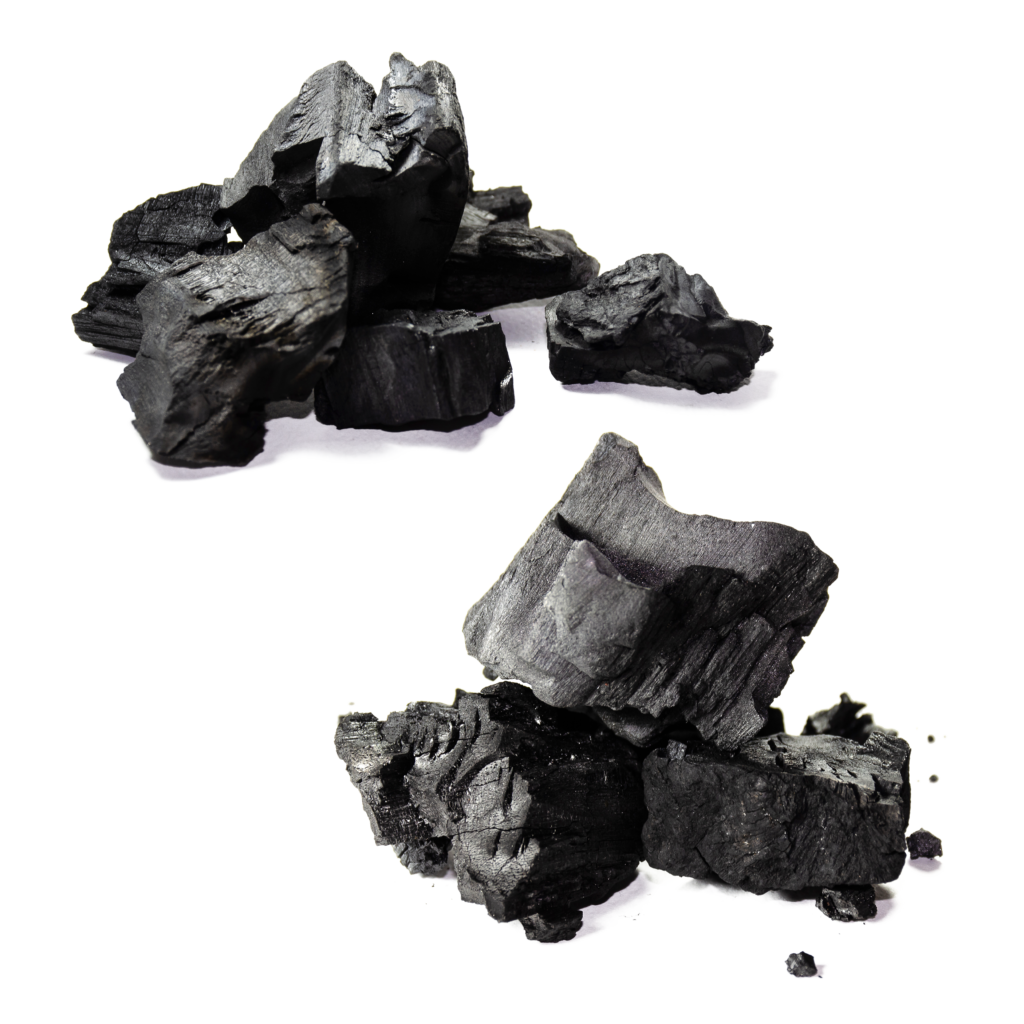
- Combating Diarrhea: Activated charcoal adsorbs (binds to) the culprits behind diarrhea, firming up droppings and preventing dehydration and energy loss. This, in turn, maintains optimal egg production in layers and weight gain in meat birds.
- Defense Against Coccidiosis: This common parasitic disease can devastate your flock. Activated charcoal helps by binding to coccidia parasites, aiding their removal from the body.
- Poison Removal: Free-ranging birds are curious creatures, sometimes ingesting harmful substances. Activated charcoal helps remove these toxins, mitigating their impact.
- Overall Health Boost: Studies show that feeding activated charcoal to poultry can improve growth rate, survival rate, egg weight, and shell quality. It even reduces harmful ammonia levels in manure, making it a better fertilizer.
- Digestive Aid: Activated charcoal acts as a gentle laxative, keeping the digestive tract moving and potentially aiding in the removal of worms.
However, remember that activated charcoal is a detoxifier, not a replacement for good gut health. Once toxins are removed, repopulate your birds’ gut with beneficial bacteria to maintain a healthy digestive system and prevent the growth of harmful bacteria.
Propolis: A Natural Defender for Your Birds
Propolis, a bee-produced marvel, acts as a natural shield for your poultry. Bees use it to seal their hives, creating a nearly sterile environment. This remarkable substance boasts a range of benefits for your birds’ health:
- Antimicrobial: Propolis is a multi-threat fighter, possessing antifungal, antiviral, and antibacterial properties. It helps ward off harmful viruses common in birds and combats infections caused by bad bacteria. This reduces the burden on your birds’ immune system, allowing them to stay healthy and strong.
- Gut Health: Propolis goes beyond basic defense. It supports gastrointestinal health by reducing inflammation in the digestive tract and even aiding in the healing of ulcers.
- Antifungal: Fungal infections can pose a threat to birds. Propolis’ antifungal properties come to the rescue, helping fight off these invaders and promoting overall well-being.
By incorporating propolis into your poultry’s care routine, you can empower their natural defenses and contribute to their overall health.
Pre and Probiotics: Creating a healthy gut microbiome
The avian digestive system is a marvel of efficiency, extracting energy, absorbing nutrients and water, and eliminating waste. 70% of the immune system in poultry begins in the digestive system. The digestive system relies on a hidden partner for optimal function: the gut microbiome. This ecosystem, teeming with beneficial bacteria, fungi, and other microbes, plays a critical role in a bird’s health.
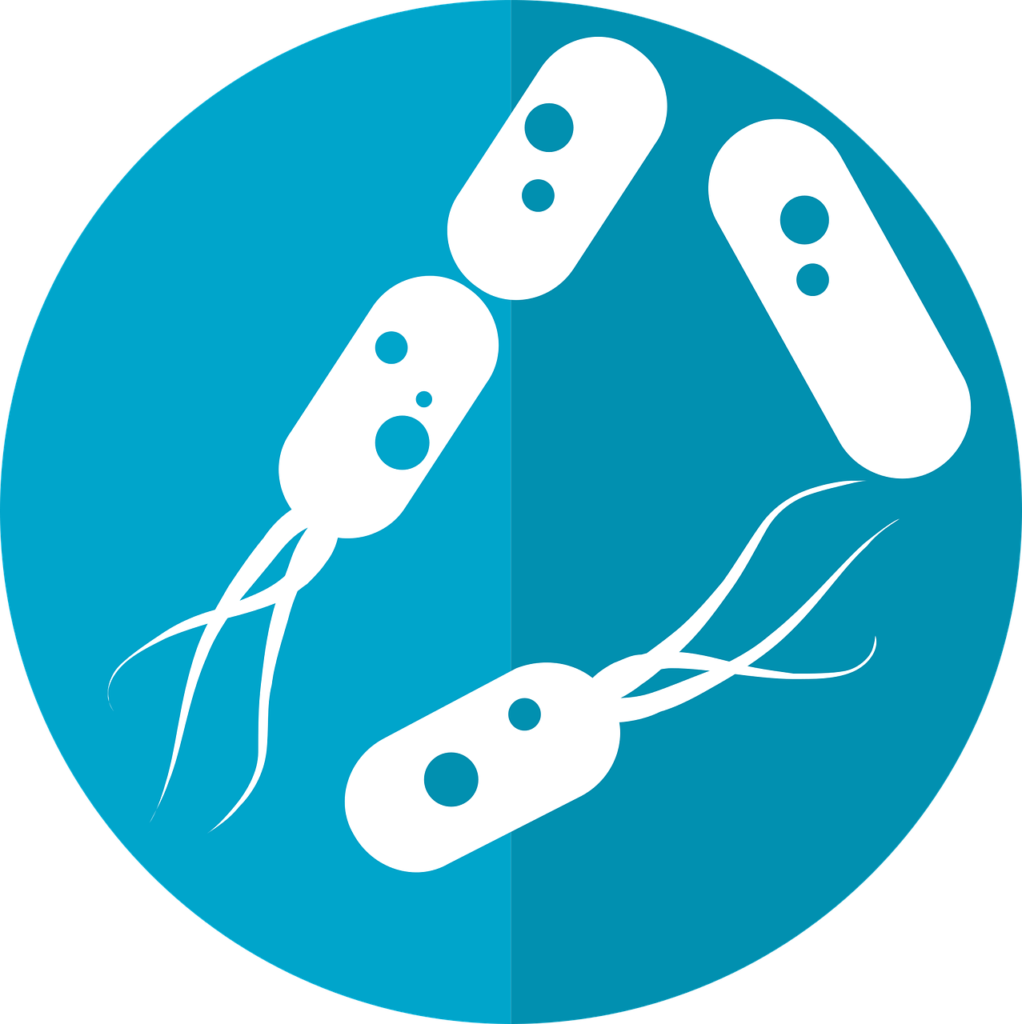
These tiny gut residents aid in extracting essential nutrients from food, a task the gut cannot perform alone. This not only optimizes nutrient absorption but also strengthens the immune system and safeguards the integrity of the digestive tract’s walls. A healthy microbiome allows birds to get more out of their food, potentially requiring them to eat less. On the other hand, a bird lacking sufficient good bacteria may need to consume more food just to meet its nutritional needs.
Furthermore, a well-populated gut microbiome acts as a defense system, repelling bad bacteria and preventing them from colonizing. Prebiotics feed the probiotics, promoting their growth and function. This, in turn, leads to a more robust digestive system, improved nutrient uptake, and a stronger immune system.
